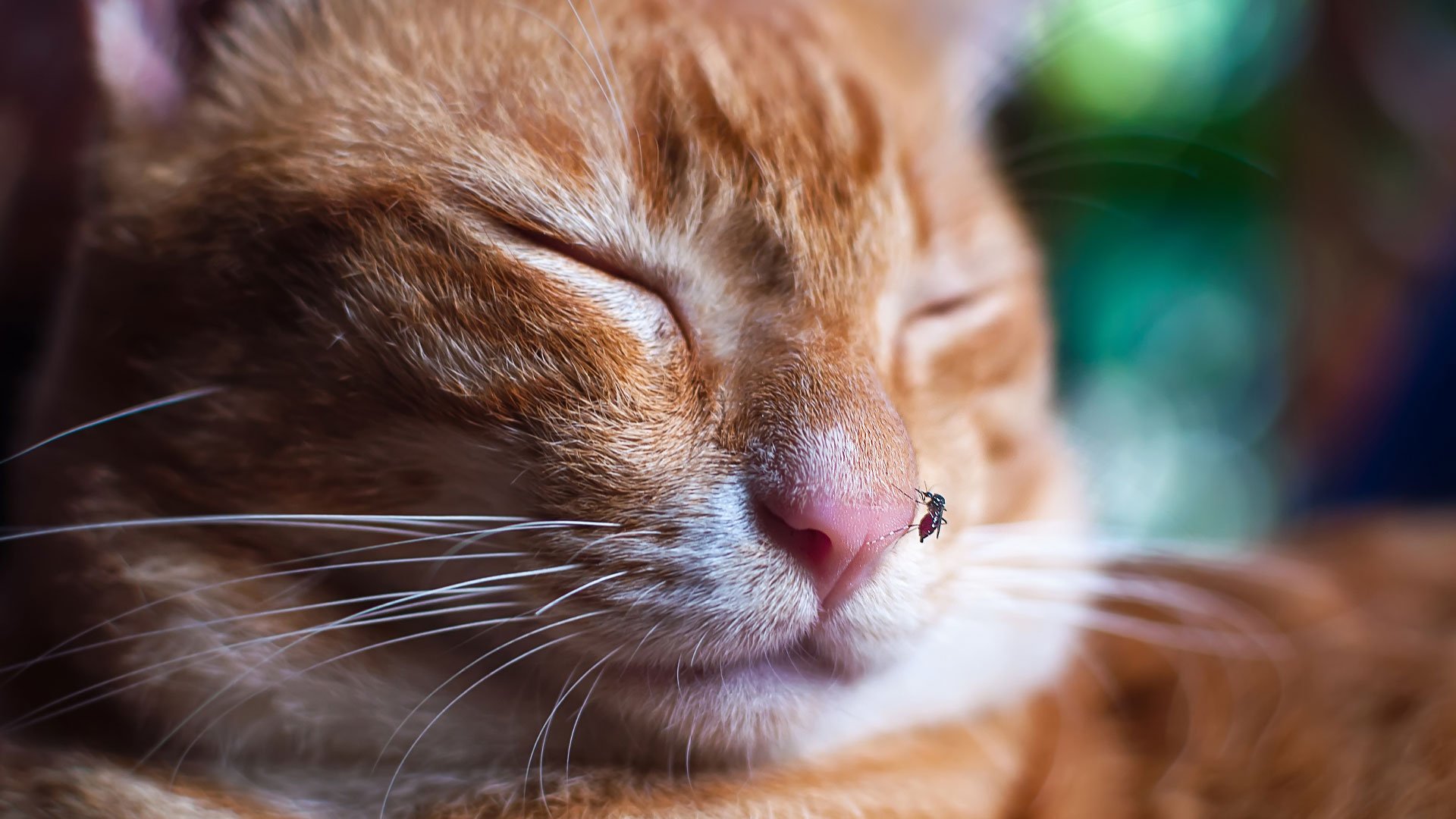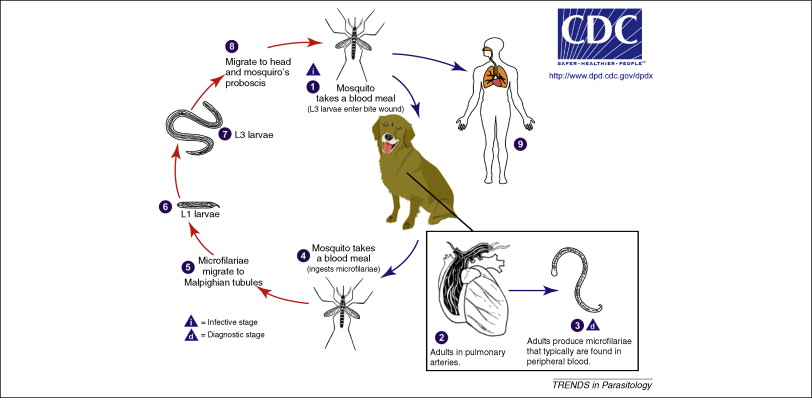
Although mosquitoes' main food source is plant nectar, females need protein for their eggs, which they get from blood meals. Mosquitoes are attracted to carbon dioxide, and just like us, pets release this when they exhale. There are over 3,500 species of mosquitoes, some prefer humans, other mammals, or even reptiles. Nonetheless, when a mosquito bites your pet, it can penetrate their fur and cause a multitude of problems.
Skin Irritation
Oftentimes dogs and other pets will scratch their bites to the point of bleeding and skin damage which can lead to infection or worse problems. However, this isn’t the worst that can happen.
Heartworm
The most common mosquito-transmitted disease that affects pets is heartworm. Infected mosquitoes carry worm larvae called microfilaria. When the infected mosquito bites your dog or cat, it can inject these larvae into their bloodstream, and once mature at 10-14 days, they become infectious. From that point your pet can pass heartworms along to other animals and continue the cycle. Heartworm can cause severe injury to the heart, lungs, and major arteries and lead to untimely death. Source:: Centers for Disease Control, February 8, 2012 (Global Health, Division of Parasitic Diseases)
Source:: Centers for Disease Control, February 8, 2012 (Global Health, Division of Parasitic Diseases)
With this being said, it's extremely important to protect your pets! Thermacell repellents will not only protect you, but also help deter mosquitos from your precious pets. You can install the LIV system in your backyard for large area coverage, or clip the portable repeller on your backpack when you're taking your pet for a hike or walk.
Additionally, consider removing still water from your backyard, keep your pets inside at peak hours, use screens on your doors and windows, and consider giving using a heartworm preventative. Remember to never use DEET on your animals as it is very dangerous and could cause neurological problems, such as tremors, seizures, or death.
Overall, what's best for your pets is best for you. Make sure to stay mosquito free with summer!